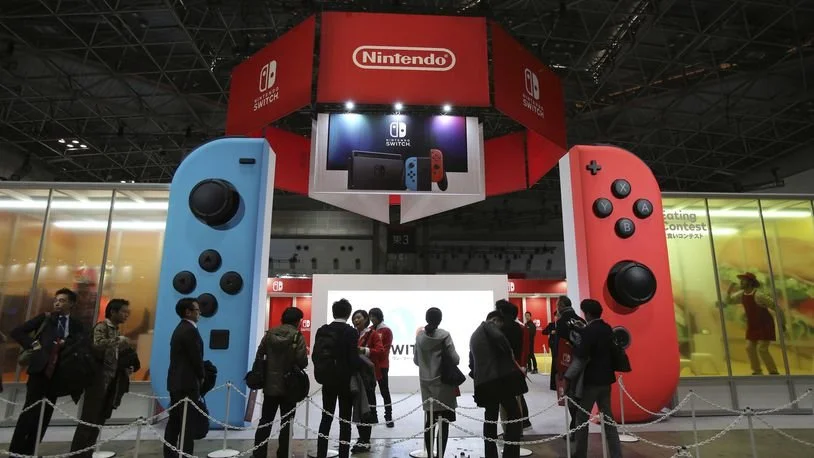How Nintendo Saved Gaming. Yea, Seriously.
I’m going to make a wild proclamation, one that I feel not enough people are saying even though the evidence is becoming clearer as time moves on.
Nintendo is saving gaming today. Yea, they honestly are.
The Nintendo Switch isn’t just a wild success story whose innovations, ideas, and transformative ways of showing what the world of gaming can become, it is the one console that is standing tall against some of the uglier practices we’re seeing within the industry.
Before I continue, I’m not here classifying Nintendo as perfect, and I’m not labeling the Nintendo Switch as flawless. The company still has some outlandish business practices that can be explained by their valuing of their IPs, and the Switch remains a device with some clunky hardware if you’re one of the unlucky ones with parts that wear and tear over time. And we still don’t have Mother 3 or a Waluigi game.
But among the Big 3, its impossible to argue which one has: the most games overall, the most highly-acclaimed games, the most remakes/remasters from past eras of gaming, the most variety in terms of AAA software, the strongest first-party lineup, the strongest third-party support, the most indie games (which is the biggest piece of the third-party market helping the Switch succeed), the most friendlier-budgeted quality games, and the most deep cuts within the gaming industry’s most-niche corners.
The Switch has over 4,500 games, while the XBox Series X only has 400+, and the Playstation 5 somewhere past 600. The PS5 has only around 6 exclusive games (including Spider-Man 2), while the Switch is approaching 70. Of course we can argue about quality versus quantity, but the Switch has over 40 games with an overall metacritic score of 90 or above, including 2 in the Top 10 ALL-TIME. And, this doesn’t include the incredible back-catalog of their universally-beloved games currently available in the Switch Online service. Now Nintendo gamers instead of having to buy each game individually can subscribe to a feature that delivers access to masterful games during the 1980s, 1990s, and early 2000s, so that’s even more potential gameplay hours that adds to the value of owning a Switch.
Most importantly, Nintendo hasn’t succumbed to many of the issues plaguing the industry today.
Worth repeating, Nintendo isn’t perfect; but they haven’t attempted to strongarm the competition by buying up a bunch of studios and developers and merging them together, they haven’t flooded their services with microtransactions (and even notoriously incomplete games at launch ended up with free updates later down the road), they have avoided the dreaded $70 price tag in almost all their games, they haven’t sold a single necessary controller over the $100 mark, and most importantly they have maintained the diversity of its output during a time where Microsoft and Sony have been steering further and further away from the Japanese market and streamlined the sort of games they’re releasing to the market.
You’ll never see the PS5 or XBox Series X come out with a Nintendo Labo or a Ring Fit Adventure, nor have we seen the other two dig deep into their vaults to bring back games from generations before---while Nintendo has developed and even published remade games that until then had never seen the light of day outside of Japan (Live A Live is a spectacular example).
The only company Nintendo has bought in recent years was Next Level Games, and that was because the company was looking to expand and needed more financial backing, which Nintendo provided.
The Playstation 5 and XBox Series X will turn three this November, and it feels like they came out yesterday, especially as we have yet to see both consoles at full power, utilizing their full potential with full software lineups, and to be honest without any exciting games hyping up the gaming industry outside of Spider-Man 2 this upcoming holiday season. The industry has felt a bit stagnant; it hasn’t felt like a true evolution from the PS4/XBox One era, and in terms of content for the gamers it has felt like we’re getting less for our money’s worth when compared to past generations. Of course, it doesn’t help that Sony and Microsoft have spent a lot of resources and time fighting in court while buying up each other’s publishers and developers.
We’ve also seen lots of broken promises within companies, studio heads, and even within the games themselves whether its Cyberpunk’s disastrous launch or the still-missing content that has yet to arrive in Halo: Infinite. We’re spending more than ever in gaming, but the exchange feels a little cheaper than in the past.
But with the Switch, we have a console that feels like a throwback to gaming’s best years (that seventh gen of gaming started by XBox 360 was truly special) with a deep varied arsenal of excellent games (from family-friendly Mario Kart 8 to the intense Metroid Dread), a reverence towards past gaming, many experimental and unique endeavors, and lastly major franchises operating at full force and delivering some of the strongest gameplay experiences within the last decade (Tears of the Kingdom the 2023 example).
Its not just me saying this, for Nintendo Switch has seen 13 of their games cross 15 million copies sold, and a wild 81 games sell over a million copies, and we’re not even including the digital-exclusive games or the Switch Online service with F-Zero 99 and especially Tetris 99 becoming huge hits.
Nintendo’s hard work to maintain quality, variety, and affordability throughout its epic run with the Switch is paying off in dividends during a time when it feels like its becoming more and more expensive to be a gamer. Nintendo fans and Switch owners have been feasting, as their gaming menu appears endless in a world where becoming a gamer is coming with higher price tags and fewer options and less appreciation towards the industry in general.
With this momentum, bring on the Switch Pro-----as long as its backwards-compatible.


